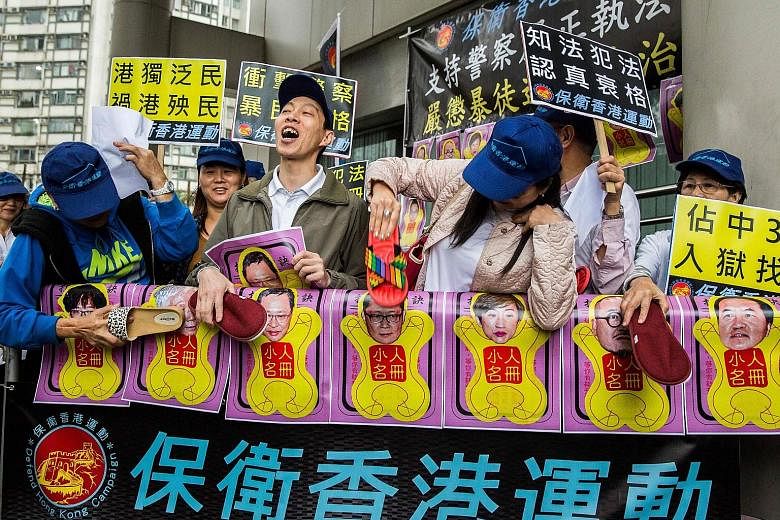Nine activists have been charged over their roles in a major pro-democracy protest in 2014, in a case which has raised concerns that the law is being used as a tool against political protesters.
The activists involved in the 2014 Occupy Central mass protests were told on Monday that they would be charged, just a day after Mrs Carrie Lam was chosen as chief executive in an election in which only 1,194 people voted.
Yesterday, the activists were charged in court with conspiring to cause public nuisance or inciting others to do so in relation to the 79-day sit-in protest, where thousands called for universal suffrage in the chief executive election.
The nine, including three founders of the protest - academics Benny Tai and Chan Kin Man, and Reverend Chu Yiu Ming - were released on bail yesterday. The case was adjourned to May 25.
Civic Party chairman Alan Leong said the Department of Justice had given legal advice to the police more than half a year ago, but the police told them about the charges a day after the election. During a radio programme on Tuesday, he said: "If no political considerations were involved, what considerations were involved?"
The case comes amid fears that Beijing is tightening its grip on Hong Kong and further eroding the high autonomy enjoyed by the city under the "one country, two systems" framework.
While some felt that the prosecution was ordered by Beijing, analysts told The Straits Times there was no proof of this.
Professor Lau Siu Kai did not think the prosecution was an order from Beijing, but a case of local government enforcing the rule of law. But he warned that Beijing will be more vigorous in ensuring Hong Kong abides by the rule of law and not deviate from "one country, two systems" in the years ahead.
One way it might do so would be to interpret the Basic Law - Hong Kong's mini-Constitution - to ensure that the decisions of Hong Kong's Court of Final Appeal do not contradict the Basic Law.
"The days of China abstaining from doing anything to Hong Kong for fear of antagonising Hong Kongers are gone," Prof Lau, who is vice-chairman of the Beijing-backed Chinese Association of Hong Kong and Macau Studies, told The Straits Times.
Political analyst Willy Lam said the latest case is "very disturbing".
"The prosecution might result in some people getting radicalised and using more violent means to express their frustration," he said.
Dr Lam added that Mrs Lam has said that she will focus on healing the political divide in Hong Kong, but what the Special Administrative Region government is doing now is the exact opposite.


